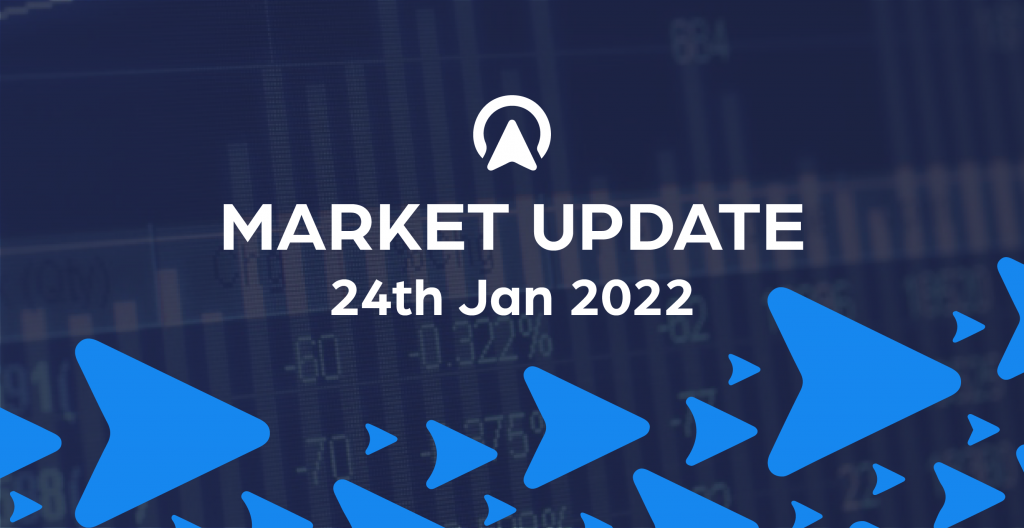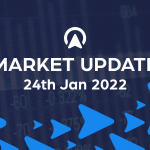
Last week we witnessed a remarkably volatile sell-off of riskier assets as a combination of earning reports, geo-politics and inflation fears were compounded with rising covid cases around the globe.
Are we over the worst? Let’s look at what key factors will affect significant currencies and the broader market.
USA / USD
After a weak start to the year for the Dollar, the worst could be over for the greenback, with markets having priced in Marches expected interest rate hike from the Fed.
This week’s headline act will be the first of eight Federal Open Market Committee (FOMC) meetings. Goldman Sachs believes the Fed will hike rates four times this year, starting in March, June, September, and ending in December with a balance sheet reduction beginning in July. This Wednesday, an interest rate announcement is unlikely to happen. Still, an idea of when the first rate hike will happen and the end of asset purchasing and balance sheet roll-off will be in play.
There is a lot of noise around Ukraine and the potential for conflict between NATO and Russia; however, fighting looks unlikely as diplomatic resolutions will be the primary focus as everyone stands to lose in an all-out war.
Thursday’s ADV Q4 GDP figures will also be worth watching as they may come in positive for the quarter, supporting the Fed’s current policy.
It may well be a strong week for the Dollar, but this will depend on the FOMC announcements and de-escalation in tensions with Russia over Ukraine.
Europe / EUR
The Euro’s early year gains have been on the decline against support for the Dollar in the face of global market volatility and sell-off of bonds due to the expected incoming rate hikes. As the diverging policies of the ECB and Fed widen, so does the pressure on ECB president Christine Lagarde to change tact and deal with inflation head-on.
This Fridays GDP reading from Germany, France, and Spain will show Omicron’s effect on recovery in the fourth quarter. Germany is very likely to have contracted in growth, and as the powerhouse of the EU, this could spell an overall slowdown on the continent, making inflation sting even more.
Russia tensions will impact Europe significantly, with the worst possible outcome being actual conflict on the continent. More likely, however, is increased energy prices, particularly Gas from Russia, which will have a further compounding effect on inflation.
The Euro faces a tough week against its key rivals.
UK / GBP
Despite rising CPI figures from last week, the markets took it as a signal that the Bank of England BoE would be sure to raise interest rates as early as February to curb inflation. The markets priced in this likely hike last week, which pushed Sterling higher, particularly against the Euro.
The UK is likely to be the first significant nation to move from pandemic to endemic, driving growth. But as markets look for less risk amidst an ongoing global stock market sell-off, rising interest rates, inflations and now a possible Russian invasion of Ukraine, Sterling may look riskier. We may see a sell-off in the short term, but the dip may be short-lived should sterling maintain its uptrend in the long term. Wednesdays, FOMC will set the tone for market sentiment and Sterling price action.
What to watch this week:
WEDNESDAY, JANUARY 26
USD – FOMC Press Conference
THURSDAY, JANUARY 20
USD – Gross Domestic Product Annualized(Q4)
FRIDAY, JANUARY 21
GBP – Retail Sales (YoY)(Dec)
EUR – Germany Gross Domestic Product (QoQ)(Q4)



